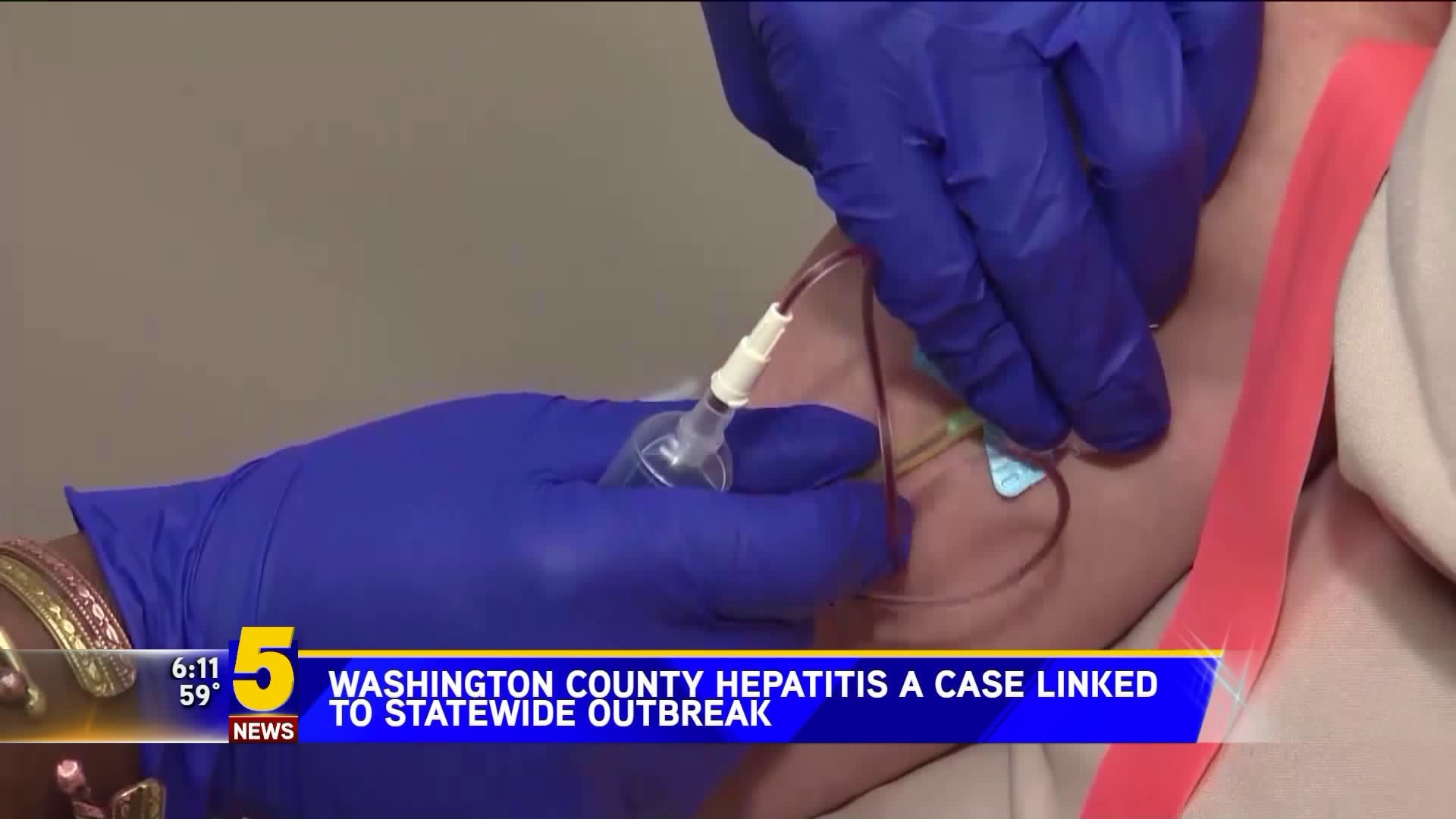LITTLE ROCK, Ark. (KFSM) — The Arkansas Department of Health (ADH) has identified a case of hepatitis A (hep A) in Washington County that's linked to a statewide outbreak, according to Meg Mirivel with the ADH.
Since February 2018, 335 hep A cases have been reported in Arkansas. Mirivel says the primary way the virus is spreading is through close personal contacts in a community.
People at high risk of getting hep A are:
- Anyone who has had close contact with someone who has hep A
- People who use drugs, whether injected or not
- People experiencing homelessness, transient, or unstable housing
- People who have been recently incarcerated
Several other states have also experienced hep A outbreaks, Mirivel claims.
The ADH says the general public is not a risk of hep A due to the Washington County case, but the outbreaks happening in Arkansas and across the nation have shown that one case in the community can lead to more cases, especially among those who are at high risk.
Individuals who have had close contact with the outbreak case are being contacted about receiving the hep A vaccine.
Hep A is a contagious liver disease that results from infection with the hep A virus, which is a different virus from the viruses that cause hep B or hep C. It is usually spread when a person ingests tiny amounts of fecal matter from contact with objects, food or drinks contaminated by the feces (stool) of an infected person. Regular hand washing with soap and water, especially when preparing food and after using the restroom, can help protect against hep A. Hand sanitizers are not effective against the hepatitis A virus.
The best way to protect against hep A is to get the hep A vaccine, according to the ADH.
Symptoms associated with hep A include fever, fatigue, loss of appetite, nausea, vomiting, abdominal pain, dark urine, clay-colored bowel movements, joint pain, or jaundice (yellowing of the skin or eyes). Anyone experiencing symptoms should see their doctor or health care provider.
If infected, most people will develop symptoms three to four weeks after exposure to an individual with the virus. Almost all people who get hep A recover completely and do not have any lasting liver damage, although they may feel sick for months.
To read the full report from the ADH click here.

